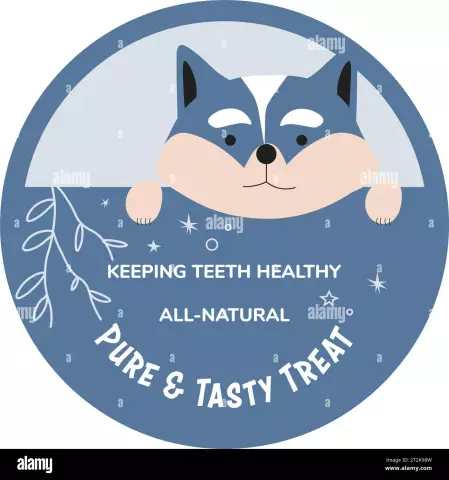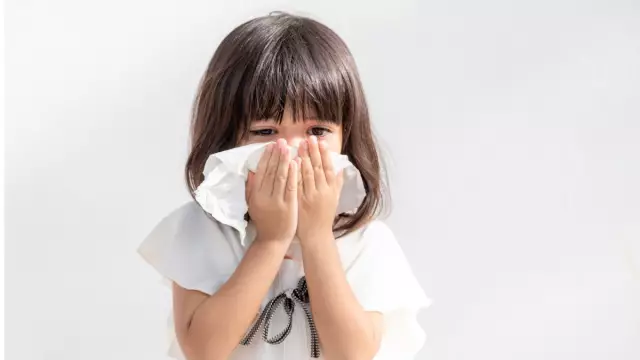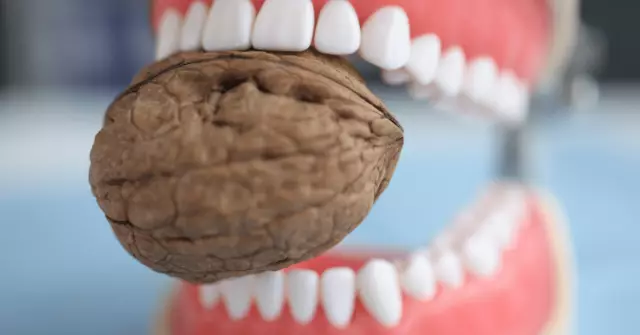- Author Rachel Wainwright wainwright@abchealthonline.com.
- Public 2023-12-15 07:39.
- Last modified 2025-11-02 20:14.
Keeping Teeth Healthy: Treat or Prevent?
The content of the article:
-
Common problems
- Gum disease
- Loss of teeth
- Sensitivity
- Dry mouth
- Oropharyngeal cancer
Most people learn the basics of dental hygiene from a very young age. After all, teeth serve several purposes, and they are all important to varying degrees. A person's ability to chew is possibly the main cause of teeth, as it helps make food digestion possible. A person's appearance, from smile to face shape, also depends on his teeth. As important as teeth are, they are not indestructible. In fact, they are prone to a number of problems that can lead to their loss. Fortunately, these problems can often be prevented if the person maintains good dental habits.
In addition to personal monitoring of the condition of the teeth, it is necessary to regularly visit the dentist. Dentistry Osokorki Lumi-Dent offers a wide range of dental care and treatment services. The competent specialists of the clinic know exactly how to keep your smile white and your teeth healthy.

How to keep teeth healthy: treat or prevent? Common problems
Gum disease
The first stage of gum disease is called gingivitis and is the only stage that is reversible. If left untreated, gingivitis can lead to a more serious, destructive form of gum disease called periodontitis. With such a disease, there may be no warning signs. This is one of the reasons why regular dental check-ups and periodontal check-ups are so important. Treatment options depend on the type of disease and how much the condition has progressed. Oral hygiene at home is essential to prevent periodontal disease from becoming more serious or chronic. Brush your teeth twice a day, floss, eat a balanced diet, and schedule regular dental visits for a healthy smile.
Loss of teeth
Did you know that the average adult between the ages of 20 and 64 has three or more decayed or missing teeth? If you are missing one or more teeth, there are many reasons to fix the problem. First, a large distance between your teeth can affect the way you talk or eat. Even if it's not noticeable, the lack of a molar can affect the way you chew. Remaining teeth can move, and in some cases, bone loss can occur around the missing tooth. With today's advancements, you don't have to suffer from missing teeth. Dental clinic Lumi-Dent on Osokorki in Kiev is equipped with the equipment necessary for tooth restoration.
Here are some options for replacing a lost tooth or teeth. Talk to your dentist about which option is best for you:
- Bridges. Attached to adjacent teeth, they can be removable or fixed, depending on the structure of the mouth;
- Prostheses. An excellent option if you have lost all or most of your teeth;
- Implants. Most similar to natural teeth.
Sensitivity
If hot or cold food makes you flinch, you may have common dental problems, namely sensitive teeth. Tooth sensitivity can occur for several reasons, including:
- caries (caries);
- broken teeth;
- worn out seals;
- gum disease;
- tooth enamel;
- open tooth root.
Sensitive teeth can be treated. Dentistry specialists Lumi-Dent on Osokorki in Kiev can recommend a desensitizing toothpaste or alternative treatment, depending on the cause of the sensitivity. Good oral hygiene is the key to preventing pain.

Common dental problems and how to treat them Dry mouth
Everyone can have dry mouth, but if you feel like your mouth is always dry, it might be time to seek treatment. Medications and certain medical conditions can lead to dry mouth. Dentist Osokorki will check your teeth for signs of caries that may result from decreased salivation. The doctor will be aware of any underlying medical condition or condition that may be causing dry mouth.
Without the cleansing effects of saliva, tooth decay and other oral health problems become more common. Patients using oral inhalers for asthma often develop candidiasis, a fungal infection of the mouth, and it is recommended to rinse your mouth with water after using the inhaler. Tell your dentist what medications you are taking and any other health information that may help determine the cause of your dry mouth.
Oropharyngeal cancer
Oropharyngeal cancer can affect any part of the mouth and throat, including the lips, gum tissue, mucous membrane, tongue, jaw, hard or soft palate, and throat. It often begins as a tiny, imperceptible white or red spot or inflammation anywhere in the mouth or throat.
During a dental check-up, your dentist may talk to you about your health history and examine these areas for signs of mouth and / or throat cancer. Regular visits to your dentist can increase the likelihood that any suspicious changes in your health will be detected early, during which time the cancer is easier to treat. Therefore, do not delay and contact the dental clinics in Kiev.
Found a mistake in the text? Select it and press Ctrl + Enter.






